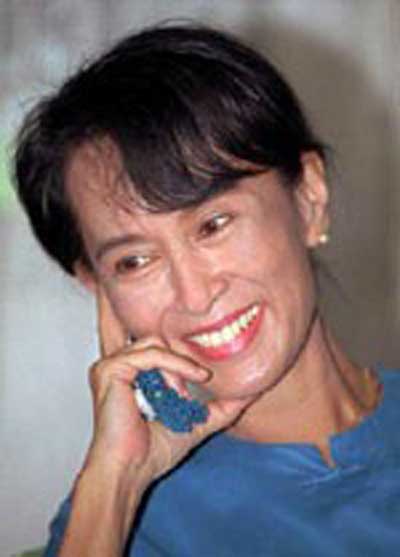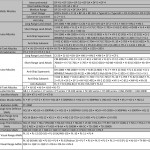 After four postponements, the third Panglong Peace Conference finally took off on 11th June at Naypidaw with over 700 delegates attending the Conference.
After four postponements, the third Panglong Peace Conference finally took off on 11th June at Naypidaw with over 700 delegates attending the Conference.
Besides those who signed the National Peace Agreement, ethnic armed organisations that had not signed the agreement also joined the conference at the invitation of the government.
The Chinese Special Representative Sun Guoxing was present throughout the conference and was active in keeping in touch with the seven party alliance of FPNCC led by UWSA.
It is said that but for the Chinese urging from behind the scenes, the armed groups that have not signed the NCA would not have attended the Conference. They were allowed to attend the conference as ‘observers’ and did not participate in the substantive meetings of the Conference.
However, on the sidelines, on the first day of the Conference itself, FPNCC members met Suu Kyi and the Army Chief separately. While Suu Kyi met all of them though separately, the Army Chief Min Aung Hliang met only four groups who had signed bilateral agreements before – the UWSA, KIA, Mongla led NDAA and SSA north while the non-signatories – the Ta’ang National Liberation Army, Arakan Army and the Kokang based Myanmar National Democratic Alliance Army were met by another Senior General of the Tatmadaw( Army).
In all, 14 principles were approved and of these seven involved social matters, four on political arrangements, two about land and environment and one on the economy.
There were very heated discussions on the only principle that related to the autonomy that states asked for in implementation of economic projects. The final accepted version was a weak one – It said “Region/State Governments have the right to draw up and implement economic projects that benefit the people. In drawing up the projects, it is to be in accord with the Union Economic Development policies and projects and consideration must be made toward not adversely affecting adjacent States and Regions.”
Even discussion on other issues relating to economy like fair share of revenue between States and Centre, full rights to draft a budget, raise revenues for expenditure and steps for macro-economic stability were flatly objected to by the Army Representatives.
There were differences even in naming the country under the new dispensation. The ethnic armed groups wanted to use the expression “Union that is based on federalism and democracy”. The military delegates objected to it and declared that the nomenclature should contain “Republic of the Union of Mynamar”. The ethnic groups were willing to accept to add Myanmar but not Republic of Myanmar.” This showed the basic unbridgeable approach between the Army and the Ethnic Groups on the future set up.
The word “federalism” appears to be totally unacceptable to the Army. Here one can understand the dilemma of Suu Kyi who for form’s sake would go along with 2008 constitution but at heart is keen on federalism and a reformed Constitution of 2008.
It should be clear to anyone that federalism and the 2008 Constitution cannot go together. While the ethnic groups insist on the former, for the Army it is a no go area. The Government’s position appears to be somewhere in between the two
Some other differences between the Government and the Army appeared to surface more in the nuances in the discussions.
Suu Kyi is aware that no progress can be made without discussing the security issues. In an indirect disagreement with the Army’s position she did mention that Security Sector was important for the success of the peace process and should be addressed at the next conference. While she desired a ceasefire as a first step to precede the talks, the Army was insisting full ownership of the national peace agreement before any other move could be made. It also insisted on laying down arms to the three groups that have not signed bilateral ceasefire agreements before any engagement could be made.
The Conference had a bad beginning with the Army Chief making a very belligerent and controversial speech that set the tone for the entire conference. In his speech he said
- All the groups should sign the National Cease-fire agreement first.
- The Armed Ethnic Groups cannot represent the entire national people of 50 million and the political parties can only represent a particular walk of life whereas the Army is the organ that represents the State and the People.
- The military is there to protect the State and the People, whereas others (meaning the political parties and the armed ethnic groups)do not represent the State and the People.
- The Army is not participating not because they are weak.
- The peace process should be completed by 2020 and if the target is not met, there is the danger of external influence and manipulation.
- The conflict is not because of the Army- the Army was just protecting the “administrative mechanism”
This speech was almost a call for the death knell of the conference. Various criticisms were heard. The Army are public servants accountable to politicians who won the elections and formed the government and cannot represent the people. Another said that the Army is there to protect the people and not represent them. Another said that the call and declaration that the Army is not weak is “sign the agreement” or else—.
Suu Kyi in her inaugural address called for marching forward unitedly. After the perceptible debacle in the peace process and the Army’s rigid stand, she bravely said –“Our Conference is not stopping, it is not reversing, it is moving forward with great difficulty (note the last word- difficulty).
At another point, Suu Kyi admitted that a peace strategy is required to implement the common goals for the future. I would add that both the Government and the Army should have a common strategy. Until that is obtained, the conferences are only futile exercises, exacerbating the existing contradictions.
To conclude, I cannot agree more with the human rights activist- Cheery Zahan who described the current situation is a return to the staus quo and nothing can be done without the agreement of the Tatmadaw (Burmese Army).




